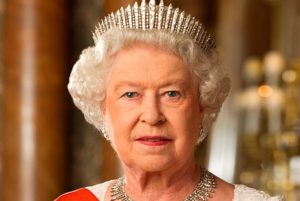Palestine in the Elizabethan era: will Britain atone for its sinful policies?

Queen Elizabeth II
Ilan Pappe writes in The Palestine Chronicle:
While millions of people in Britain and around the world can not stop singing the praises of the late Queen as a paragon of moderation, sensibility, and common sense, quite a few of the people who were colonized during her reign, or were second-rate subjects in Britain itself, took a far more complex view on her 70 years of rule.
Of course, the Queen was not the chief policy maker in all these 70 years, but symbolically, any decision taken was after all Her Majesty’s Government’s decision, for good or for worse. So, indeed, we can all agree that an era has to come to an end, and this is always a good time for reflection and summation. From this perspective, I would like to revisit Palestine in that era, more specifically the British policy towards Palestine and its impact.
Queen Elizabeth’s rule began after the Nakba. Therefore, the disgraceful British behavior that allowed the 1948 Israeli ethnic cleansing of the Palestinians belongs to the period when her father was the king of the United Kingdom. Elizabeth began her time on the throne when the Conservative Party bounced back after a surprise defeat in the 1945 elections to Labour that were ruling Britain during the time of the Nakba and carried direct responsibility for its occurrence.
When the Conservatives came back first under Winston Churchill and then under Antony Eden, another shameful chapter in Britain’s relationship with Palestine and the Arab world was written by Her Majesty’s Government. Britain colluded with France and Israel to try and topple Gamal Abdul Nasser and, on the way, fully endorsed the intransigent Israeli refusal to allow the Palestinian refugees to return, a rejection that was followed by a shoot-to-kill policy towards the Palestinian refugees trying to retrieve their crops, husbandry and whatever else was left after the Israeli pillage of the Palestine countryside in 1948.
The Labour Party, in the period between the Nakba and the Naksa (the June 1967 war), was most of the time in opposition, but was the most loyal ally of Israel, on a level unimaginable even today. An alliance that also included the Trade Union Council (TUC), which, together with other leading socialists, turned a blind eye to the suffering of the 48 Arabs under a cruel military rule, based on colonialist British emergency regulations that bred, among other atrocities, the Kafr Qassem massacre in 1956, preceded by the massacre of the village of Qibya before that, and in the village of Samu’ after that.
